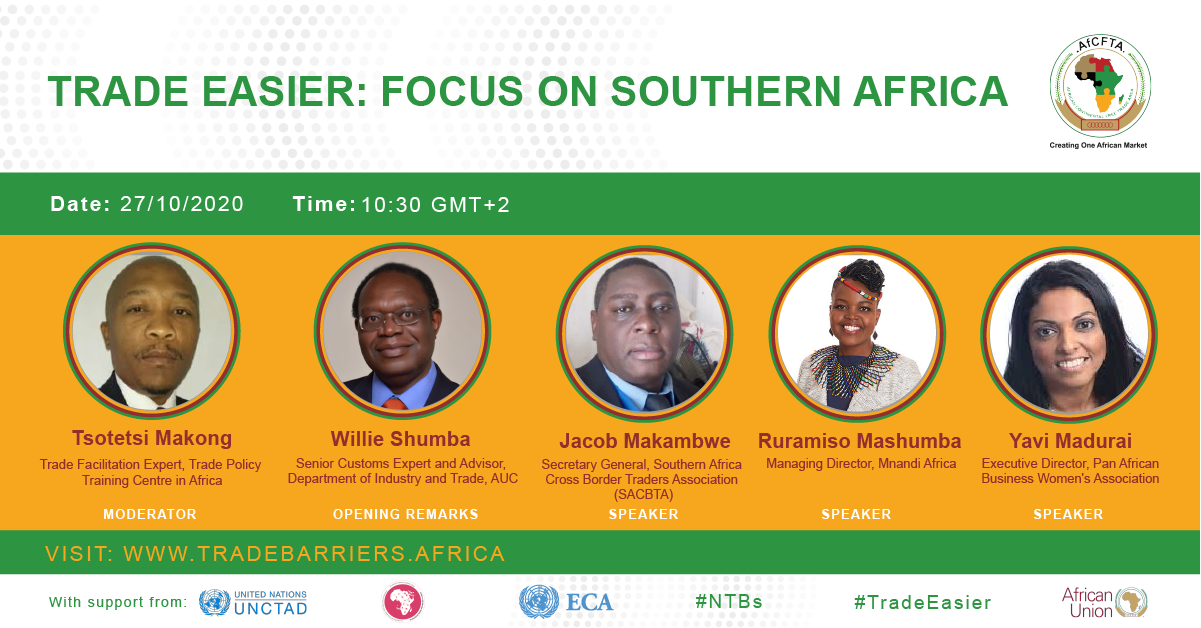

Background
Non-Tariff Barriers (NTBs) are among the main obstacles to trade between African countries. These regulatory and procedural barriers include customs operations and border documentation requirements, rules of origin documentation, pre-shipment inspections, transport regulations, sanitary and phytosanitary measures (SPS) and Technical Barriers to Trade (TBTs). Although the negative impact of these measures on intra-regional trade is recognised, thus far there has been limited success in addressing them.
A report by the United Nations Conference on Trade and Development (UNCTAD) shows that African countries could gain US$20 billion each year by tackling such barriers at the continental level – much more than the $3.6 billion they could gain by eliminating tariffs. The sound application of trade-related regulations to ensure consumer health, protect the environment and safeguard national security is legitimate – but disproportionate restrictions or cumbersome enforcement can still amount to NTBs and should be addressed. The use of NTBs for protectionism goes against the principles of African integration.
The United Economic Commission for Africa (UNECA) estimates that the AfCFTA has the potential to boost intra-African trade by 52.3 per cent by eliminating import duties and double trade if NTBs are also reduced. With the opening up of the African market under the African Continental Free Trade Area (AfCFTA), greater success will be realised if governments track and facilitate the removal of NTBs. That is why the Non-Tariff Barriers (NTBs) reporting, monitoring and eliminating mechanism (tradebarriers.africa) is a welcome development. This tool makes it possible for African businesses to play an active role in removing obstacles to continental trade by reporting NTBs and getting an online resolution to the issue so that trading can continue unhindered. Reported barriers are monitored and addressed by national, regional and continental authorities through a coordination mechanism. This mechanism is part of the African Continental Free Trade Area (AfCFTA), adopted by African Heads of State.
Micro, small and medium-sized enterprises (MSME’s), informal traders, and youth and women business operators play a crucial role in African trade but are disproportionately impacted by NTBs due to their limited resources and access to information. To address this issue, the #TradeEasier campaign seeks to raise awareness and inform African businesses, specifically MSME’s, about the trade barriers platform so they can more easily report barriers to trade to national and continental authorities and get support in getting them resolved. One of the main components of this social media campaign is a series of webinars focused on discussions around how to trade more easily across Africa, and the first webinar in the series will focus on Southern Africa. The #TradeEasier webinar series will be the flagship feature of this digital campaign.
Objectives
The webinar series aims to:
Speakers
Moderator
Opening Remarks
Panellists:
Discussion Questions and Topics
Panel questions
We seek to explore the following general questions and issues during the webinar:
Polling questions
We will run a short poll for attendees during the webinar and propose the following questions:
Registration
Registration link: https://us02web.zoom.us/